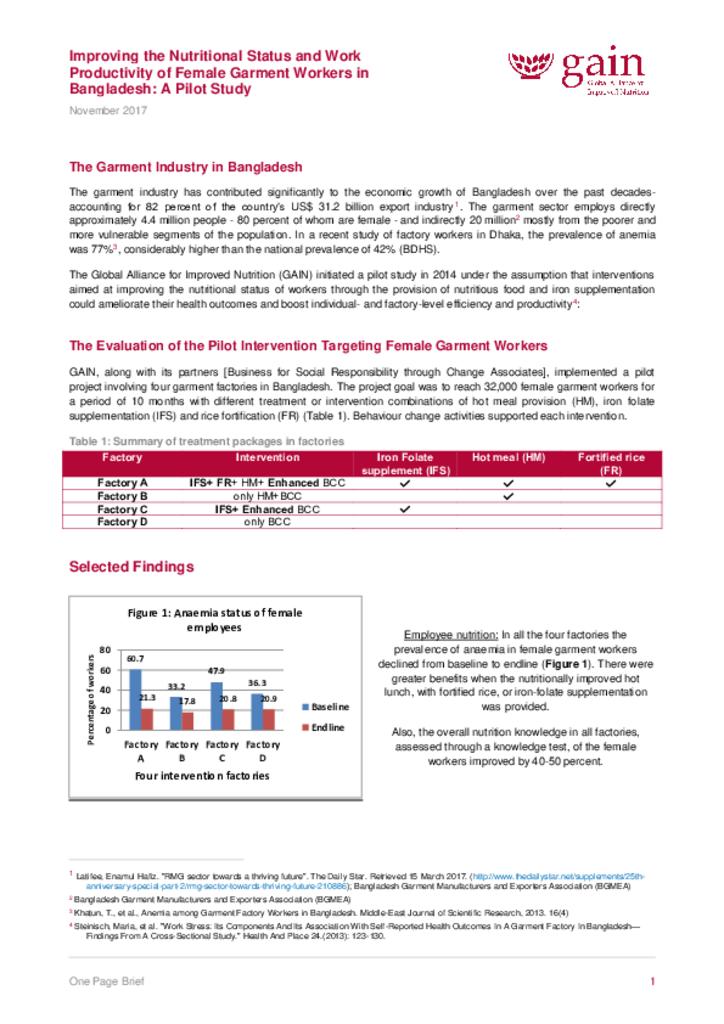The garment industry has contributed significantly to the economic growth of Bangladesh over the past decades accounting for 82% of the country’s USD 31.2 billion export industry. The garment sector employs directly approximately 4.4 million people - 80% of whom are female - and indirectly 20 million mostly from the poorer and more vulnerable segments of the population. In a recent study of factory workers in Dhaka, the prevalence of anemia was 77%, considerably higher than the national prevalence of 42%.
The Global Alliance for Improved Nutrition (GAIN) initiated a pilot study in 2014 under the assumption that interventions aimed at improving the nutritional status of workers through the provision of nutritious food and iron supplementation could ameliorate their health outcomes and boost individual and factory-level efficiency and productivity.
GAIN, along with its partners - Business for Social Responsibility through Change Associates - implemented a pilot project involving four garment factories in Bangladesh. The project goal was to reach 32,000 female garment workers for a period of 10 months with different treatment or intervention combinations of hot meal provision, iron folate supplementation and rice fortification. Behaviour change activities supported each intervention.
